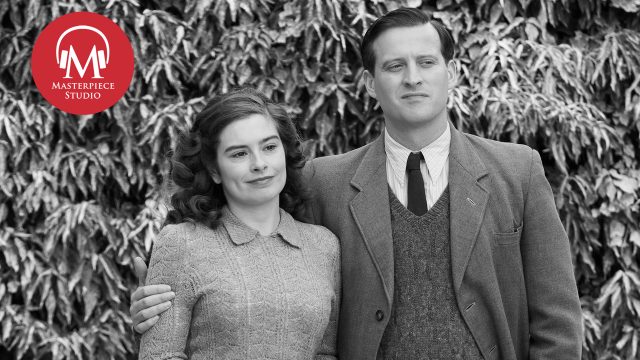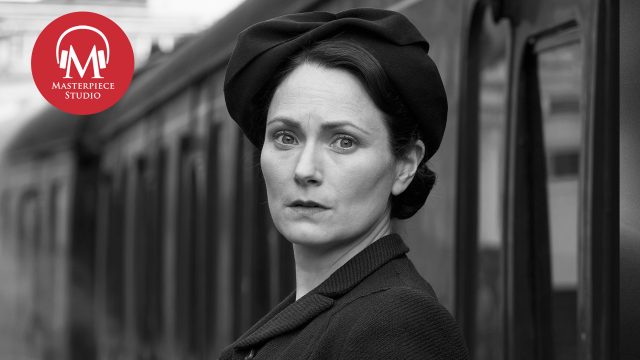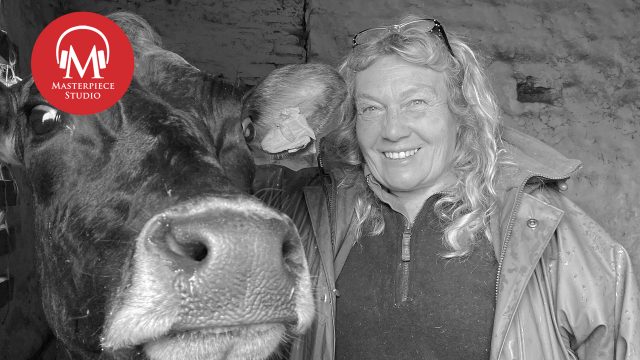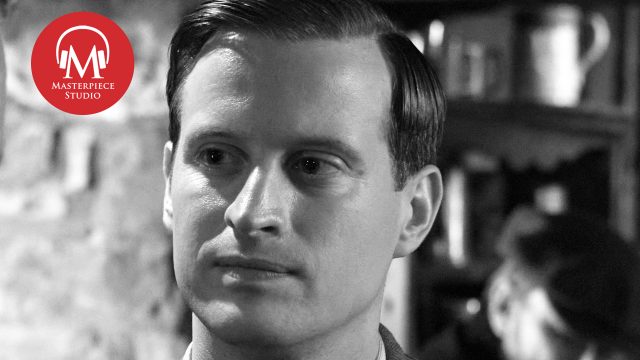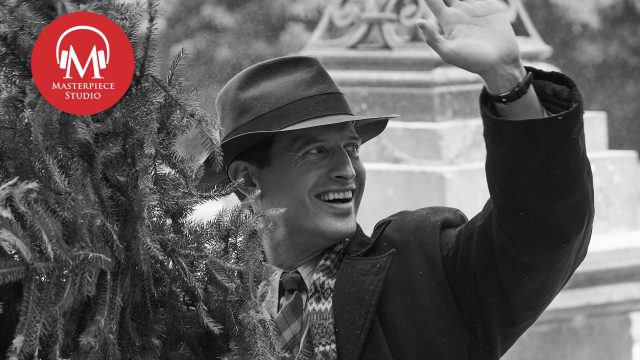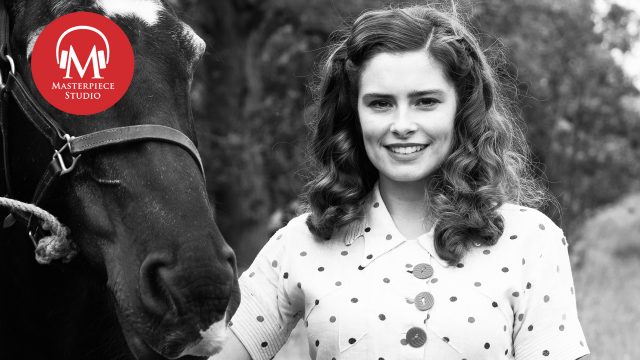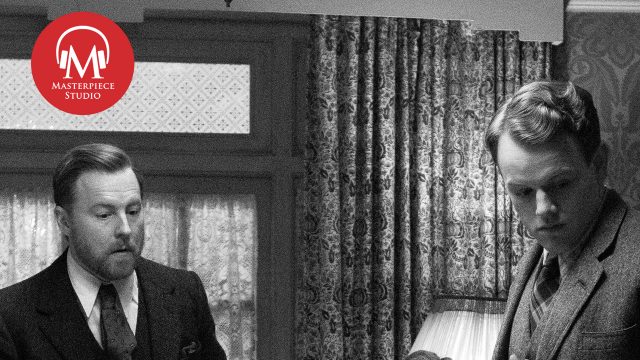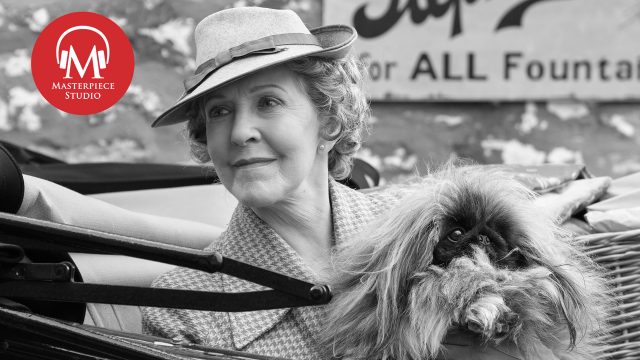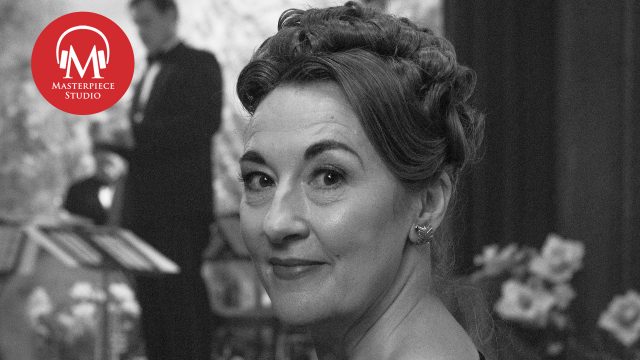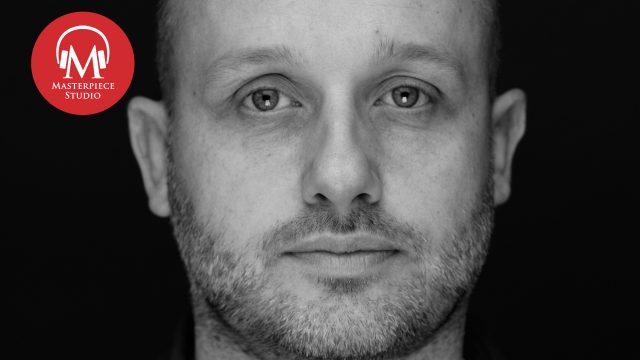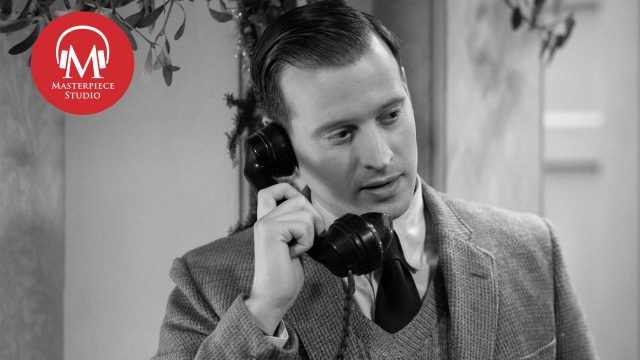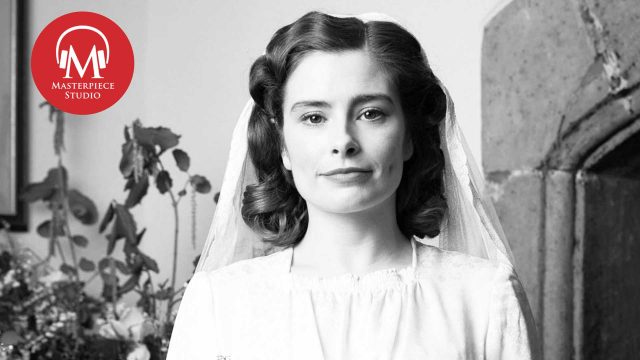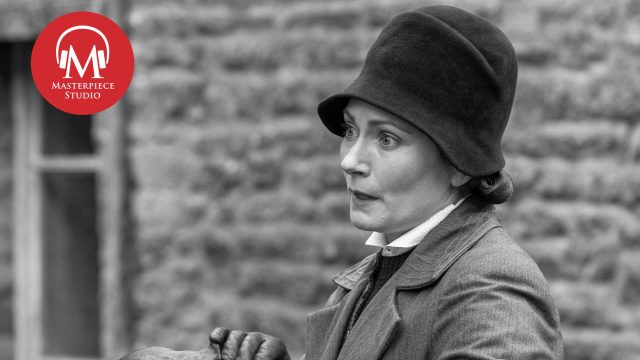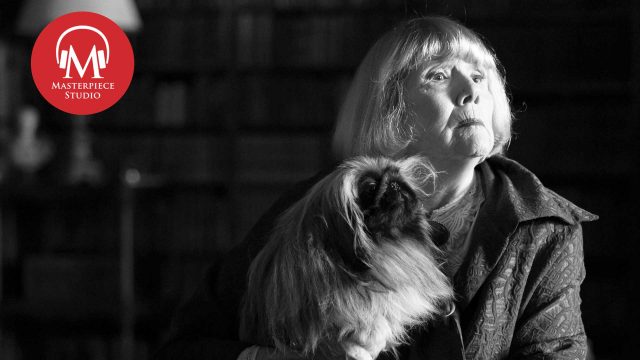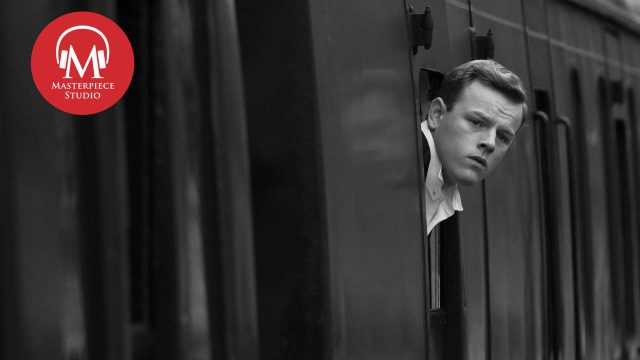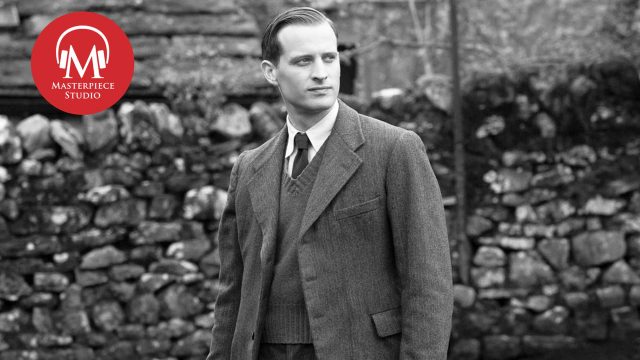Siegfried Farnon is a difficult man to live with — and Donald Sinclair, the real life Yorkshire veterinarian he’s based on, was just as unusual. Actor Samuel West used Alf Wight’s memoir series and personal anecdotes from those who knew Sinclair to build his character, and he shares some of those stories in a new podcast interview.
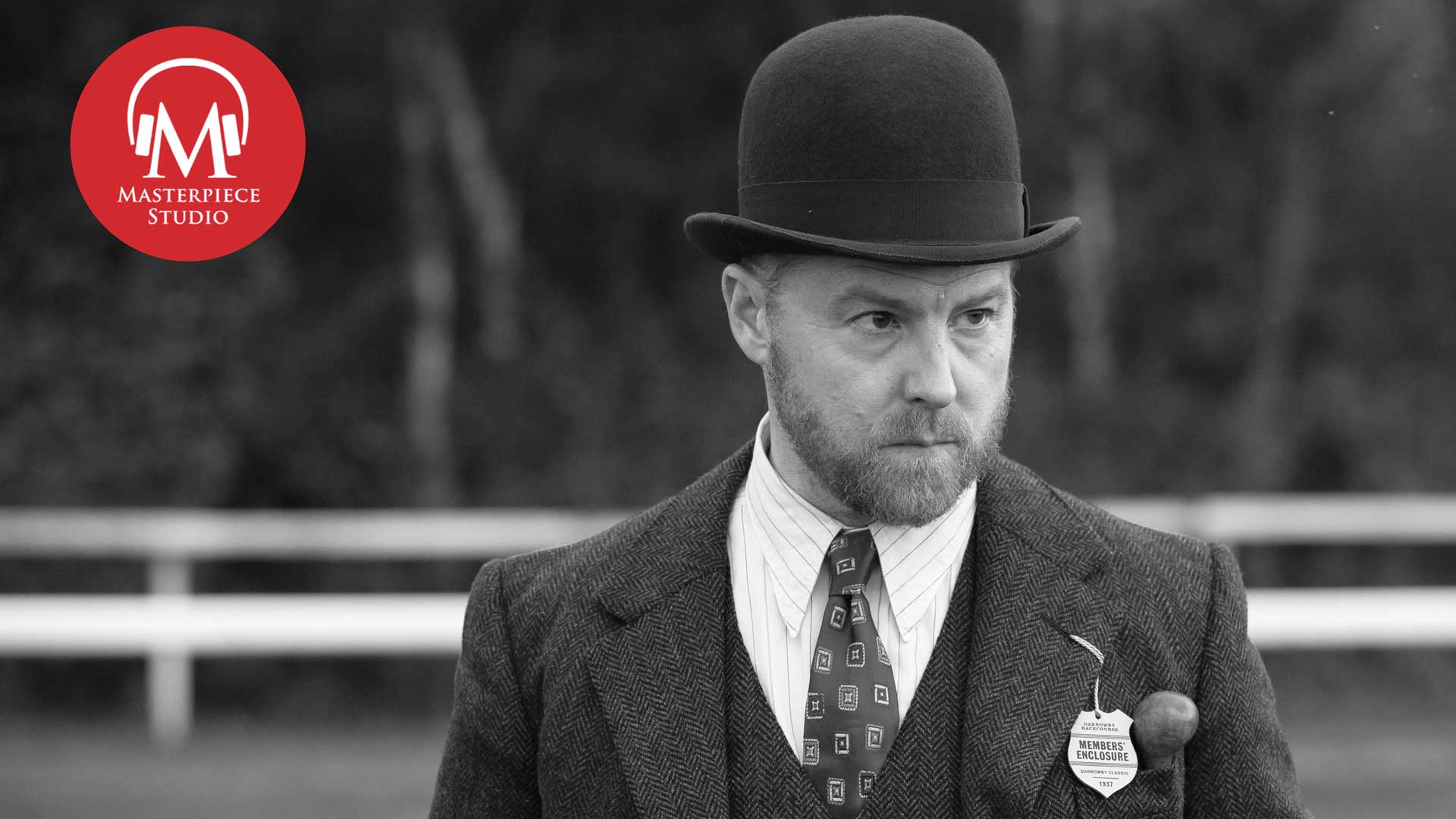

Take It From Samuel West — The Real Siegfried Farnon Was Just As Quirky
Released 42:28
Related to: All Creatures Great and Small, Season 1
Download and subscribe on: iTunes | Spotify| RadioPublic
Transcript
Jace Lacob: I’m Jace Lacob, and you’re listening to MASTERPIECE Studio.
Siegfried Farnon is a difficult man. Even his nearest and dearest, like his brother or housekeeper, admit as much.
CLIP
Siegfried How is it possible? We’ve worked harder than ever since James arrived. More surgery time…Where’s all the money from that gone?
James Shall I call the police?
Mrs Hall Still in the farmer’s pockets, I should imagine. When was the last time you chased the bills?
Jace But not even his brother would doubt Siegfried’s veterinarian skills. Siegfried is the devoted caretaker for the animals of the Yorkshire Dales, helping out carthorse and housecat alike with the same diligent expertise.
CLIP
Siegfried If I can help a horse in pain, I feel in some way I’m repaying a debt of sorts. There you have it.
Jace And while Siegfried is gruff, he can’t help but thrill at his chance to tend to the noble racing steeds at the Darrowby Racecourse.
CLIP
Siegfried I mean, don’t get me wrong – I take great satisfaction in looking after our usual clientele of cart horses and gymkhana ponies. But to spend a day with those magnificent beasts, bred to perfection. And the General was impressed. He had me down as an also-ran. Now he knows I’m a thoroughbred.
Jace Samuel West is already familiar to MASTERPIECE audiences for his earlier roles in Persuasion and Mr. Selfridge, and he joins us on the podcast for the first time to talk horses, poetry and Donald Sinclair, the real life Siegfried Farnon.
This week, we are joined by All Creatures Great and Small star, Samuel West. Welcome.
Samuel West Hello, nice to see you.
Jace You were familiar with the 1970s’ All Creatures Great and Small, you watched the show with your parents and read several of the James Herriot books when you were young. What did it mean then to be participating in this reimagining of All Creatures Great and Small?
Samuel Yes, as you say, I’m very old and I remember sitting on the sofa when I was about 12, I think in probably 1978 watching the first series. My parents, who were both actors, were a little bit crossed that they weren’t in it because everyone else was. And I mean, it was very much a part of any 1978 12 year-old’s childhood, because it went on for about another 10 years across eight or nine series and several Christmas specials. And also we only had three channels, so there wasn’t a lot else on, but it was beautifully done and we overlooked that stuff like when they go inside, it switches to videotape, and then when they go outside, it switches to 16-millimeter and goes all fuzzy. We didn’t mind about that because we were used to it from Fawlty Towers and Doctor Who and things like that. So, yes, they were absolutely cultural icons, these these people. And I’d also grown up with the books, I think, because they were loo books. I mean, they were they were loo books for very many people in the 1970s, partly because all their chapters can be read during an average visit to the bathroom and partly because they really were everywhere. I mean, thanks to America, really, they were published in the late 60s in this country, but didn’t really take off until the first combined volume of the first two books, which really sold well in America in about 1972 I think. So really we have the fact that there ever was a first series, let alone this new version, we have the Americans to thank for that.
Jace I mean, given the fact then how beloved the 1970s version was, did you see imagining Alf Wight’s James Herriot books for a 2021 audience as being risky in any way?
Samuel I suppose it’s risky if you look at what we’re setting it against. I mean, I became a father six years ago and then again three years ago, and suddenly found a lot of television drama unwatchable because it was all about murder, or terrible things happening to children quite a lot of the time. There isn’t a lot of peril in All Creatures Great and Small, but what there is, does matter. I mean, the big problem in the first episode is that a cow might not give birth or if they did, the birth might be stillborn. And that in the great scheme of what’s happening in the world is not a tragedy. But if you can make it about a farmer’s family who only have one cow. instead of 5,000, like most farmers have now, then it really does matter that that cow survives. And if you can set your scale small enough and make it true enough and make it analog enough so that, you know, people really are forced to live together and care for each other when things go wrong and look after each other when they fall, then I think the stories matter as much as ever. And there was this extraordinary thing that happened. We finished filming in the middle of January last year, about almost exactly a year ago. And then we just about managed to get some early dubbing in for the episodes and then there was lockdown. And then we just about managed to get the late episode dubbing in when lockdown lifted, and then it was out in September, and it just touched a nerve. Everybody was looking for something simple and well told that was about decency and community. And yeah, we hit the spot. I think it’s beautifully done and very well looked after by everyone concerned. But I won’t pretend that the surrounding circumstances weren’t useful, I think in this case, yeah.
Jace I mean, there is, I think, an impetus to sort of lean into those stories where there is a sense of community, where people are caring about each other, especially in a time of isolation that we are all in right now. Does it, in a way, feel prescient? We’re talking about a time in the 1930s, but it feels like it is touching, as you say, a nerve right now.
Samuel I think what we forget actually is how well written the books are, initially. They’re very textured and. Very truthful, and though they’re extremely funny, but they’re mostly based on sort of character and as I say, decency and and so that gives them depth, it does matter. Although, you know, I think probably the 1970s series was a bit closer to a sitcom. And Brian Percival, our leading director, described this one as a drama with jokes and animals, and he shot it like that. I mean, he got a Danish director of photography who isn’t, you know, Scandi-noir thriller, but absolutely has a cinematic style and makes it look bigger and more cinematic, more expensive. It becomes much easier to trap the very few days of sunshine that you have in the days of drones, because in the past you had to book a helicopter pilot and hope that it was sunny on the day that they arrived. But now if the sun comes up, you know, four days in eighty, as it did, you’ve just put a drone up and it looks like a million dollars. So that helped, I think. I think leaning in is right. I mean, 1937 is not is not a time of entirely rose-tinted nostalgia. You know, America was in a big depression and we were catching a serious one in Britain as well between the wars. We’re only two years away from the second war. There’s not a lot of money around. Hitler is Chancellor. And we’re hearing all sorts of terrible things going on in the name of fascism in in mainland Europe. I mean, I don’t want to make it sound too gritty, but it is a time when, yeah, there isn’t a lot of money. The few people like Mrs. Pumphrey in the society who have lots of money are lauded and rather celebrated and rather looked up to and spoiled because, you know, they’ve got money and not many other people have. And you have to look after your customers because otherwise they’ll go to the other guy and there is only one other guy. So, you know, looking after looking after the farmers of Darrowby becomes a PR exercise as well as a veterinary exercise. So there’s all sorts of tensions and cables. And, you know, even before you get into the house, which feels like an extended family, even though only two people in it are actually related to each other, and me and Tristan are, you know, nearly 20 years apart, we managed to work out. And so I’m basically his father, even though our father is dead and my wife is dead and we didn’t have any children. So James is my son that I never had. And Mrs Hall is, you know, the person who runs the whole thing while pretending that I do. So there’s all sorts of there’s all sorts of tensions and dynamics going on in the family as well.
CLIP
James Good luck today.
Mrs Hall Hold on.
Siegfried Thank you!
Mrs Hall I’ll keep an eye on Tristan for you.
Siegfried Yes do. Remember. Spare the rod, spoil the child.
Jace I want to talk about Siegfried. Siegfried Farnon is an interesting character, to say the least. He’s fastidious, eccentric. He’s quick tempered. He’s described in Ben Vanstone script as, quote, “Having a mind that works so fast he struggles to keep up with himself.” What do you think makes Siegfried tick?
Samuel I mean, his own will, I think, is probably the main answer, he’s quick tempered, as you say, but he’s not bad tempered. And that’s an interesting distinction. He’s very quick to fly off the handle, but he doesn’t bear grudges, which I think is very attractive. He’s also incredibly absent-minded. We actually worked with a vet, Andy Barrett, who worked with the real Siegfried Farnon, Donald Sinclair, at the end of his life. And Andy managed to keep the job because when Donald would say to him things like, ‘I told you that yesterday,’ all the previous vets would say, ‘No, you didn’t.’ And Andy, who knew that he hadn’t just said, ‘Oh, yes, of course. I’m so sorry. I forgot,’ and he managed to keep the job. Whereas Donald at this point was very forgetful. But Andy managed to stay on the right side of him by just pretending that he was right all the time. I think Siegfried is driven by a desire to be a good vet, and that’s important to remember. You mentioned Ben Vanstone’s notes…one of the things that really attracted me to the part, I mean, the first thing to say is that I don’t get to be very funny very often. I don’t get to play comedy very often. I have quite a serious voice and I tend to play quite serious people. So the chance to be in something where, you know, there were clearly laughs to be got with the words or with the character was a nice opportunity. And when I absolutely jumped out and there’s a certain amount of name recognition in the part, I mean, it may not be Dr. Who or Hamlet, but if you say I’m playing Siegfried Franon and people go, ‘Oh, brilliant,’ or ‘Oh, better get it right,’ or oh, ‘You won’t be as good as Robert Hardy,’ which of course I’m not. But I did know Robert Hardy and worked with him and I and I got a lovely tweet from the Robert Hardy fan club when I’d been cast saying, ‘Of course, nobody will be as good as him. But we were very pleased that it is you who’s going to try.’ And that was very sweet of them. And that gave me some confidence. I think the main thing that I like about him was basically Ben sent me a list of character notes very early on that were written — I mean, I don’t want to over overegg this pudding, but — it could have been a Chekhov play. It talked about his war record and how he’d seen a lot of horses shot in the First World War, as many thousands, tens of thousands were, because it was cheaper to shoot them than to take them back from France or mainland Europe. And he’d come back rather preferring animals to people, as a lot of people did, I think from the first war, his wife, Evelyn, has died only four years before and he’s still emotionally quite blocked about that. He was a bit of a ladies man and with no children could, you know, could be absolutely dating again after four years. But he’s still in love with his wife and he’s finding that toe very difficult to dip into the water, although he does manage later in the series, no spoilers, but with mixed results. And I think he just struck me as a complex and real character. The actual Donald was pretty eccentric. I remember the first thing I knew about him that Jim, Alf’s son, told me when we first met him, was that he’d once got up after a dinner party and instead of offering everybody coffee, he’d grabbed a shotgun and discharged it into the wall of the cottage he was in because he was bored and he wanted everybody to go home. I thought I have been to a few dinner parties where I really wanted to do that. Had I had a shotgun handy, but how wonderful to be playing somebody who doesn’t just think of doing that, but then actually does it. And he also he walked out of his own granddaughter’s christening. He said, ‘I’ve had enough of this.’ And the more I heard about it, the more I thought, yes, there sort of aren’t any rules with him. I like this. And I think we’ll probably see more and more of that as we go on through a second series. But deep down, he’s a very caring person who’s trying to be empathetic, I mean, as vets are generally because, you know, the first book is called, If Only They Could Talk. The problem with looking after animals is that they can’t tell you what’s wrong with them. So you have to try and understand them in other ways. And this is this is possibly more more depth then is there. But it’s a very interesting time to be a vet in 1937 because you’re on the edge of antibiotics, penicillin has been invented for eight years, but is not yet available for humans, let alone animals, it takes the Second World War for that to happen. But you can see in the distance these magical cures that aren’t, you know, putting an onion up accounts bottom or putting it up or putting a fleece on top of it and like some old wives’ tale, but you can’t get to them because they’re not quite there. So you’re really using tools that are 100, 200, sometimes 500 years old and trying to do modern 20th century-curing. And that’s very frustrating, I think. And I like the fact that he’s he wants to be as good at that as possible. But but he absolutely marches to his own drum. He doesn’t have a lot of there’s not a lot that that is a control on him and that’s that’s always attractive to play. He doesn’t care if he’s liked. And deep down, as I say, he’s he’s very loving and that’s always nice. You know, when you play somebody short tempered, you think. Look for the patience in a short-tempered man or look for the kindness in a man who shouts a lot and he’s patient with cows and he’s kind to Mrs. Hall when you know, her son is absent and she needs comfort. Deep down, he’s a decent man. But on the surface of it, it doesn’t seem it, I like that playing the cover up.
Jace I mean, there is that moment in the first episode where he talks to a cow whose calf they’re treating.
CLIP
James The plaster cast should be sufficient to hold it in alignment.
Siegfried Should?
James It will be.
Siegfried Very good. Carry on. Don’t worry, we’re here now. We’re going to look after her.
Jace It is this sort of tenderness, this this loving quality within him that is sort of hidden by the sort of quick temper and his sort of fastidiousness, but it’s there. It’s there if you look for it.
Samuel Exactly I’m very glad you said that, because I actually when I read through the script we did when we did the read, I remember thinking that line’s quite important. It’s a little bit of a little bit of a window that you can choose to look through at Siegfried or not. But it’s there if you want.
Jace I mean, to me, the third episode does a great deal to humanize Siegfried. It begins with him so full of hope about a new role as the attending vet at Darrowby Racetrack. What could this new role mean for him in terms of his practice and what’s possible in 1937?
Samuel Well, it’s quite an important job, attending vet at the big race course, it always has been, and it’s a very interesting class distinction between the General played by Nigel Havers and Siegfried, who is generally thought to be quite posh in the village, but when he meets somebody who’s really posh is clearly being looked down on. So he buys a new suit. And I mean, at heart, he loves horses. And it’s not hard to love horses. I mean, a lot of, you know, teenagers love horses and never lose that love. They’re extraordinary creatures. I’m reminded of that chapter in Gulliver’s Travels where he goes and meets the houyhnhnms or however you want to pronounce it. And then they’re extraordinary and beautiful and wise. And then about halfway through the chapter, you realize they’re horses and they’re much more beautiful than humans. I think it’s his dream job. I mean, I haven’t spent a lot of time around thoroughbreds. And we had a couple of days at Rippon Racecourse in Yorkshire. And it’s like being surrounded by equine supermodels. I mean, they’re extraordinary things. They’re just that incredibly sort of efficient. It’s like a sort of horse designed by a machine. There’s absolutely nothing about them that isn’t designed to run incredibly fast like a sprinter. But I think, yes, it’s everything he’s ever wanted because. It’s a combination of a job that he will love and be good at and knows a lot about and has some security and also has some shininess attached to it, I mean, it’s not exactly that he’s sort of looking up in the world, but but it would be. A very important thing for him to have for the business and for his own stature in the community and for his own stature as a man, I think so. He goes off to the interview really, really wishing he can do it. And, of course, it doesn’t always work out that way.
Jace I mean, Siegfried stands up to ransom when the horse falls. He he then bonds with the fallen horse, looking him in the eyes, gently stroking his muzzle.
CLIP
Siegfried Yes, you’ve given yourself a fright, haven’t you? But you’re fine. Let’s get some more air in to your lungs. Ready to have another go? Come on then. Up and at ’em. That’s the one…let’s be having you, there we are. Well done. Walk on.
Ransom I’m not used to being spoken to in that manner.
Siegfried And I’m not used to putting personal niceties before good professional practice, Sir.
Jace Is this the ultimate distillation of Siegfried, the notion that the animal will always come first, even in an instance where his professional career could skyrocket?
Samuel Yes, you put it very well. Yes, exactly. It’s always about the welfare of the animal. And that’s an incredibly important principle. I mean, in the books, it’s reflected, as, you know, the work. The animal always comes first or sometimes Siegfried says to James, ‘Always attend.’ So James is called at 2:00 in the morning. He gets back into bed at three and the phone goes at five. And and he thinks, I mustn’t. And Siegfried says, James, ‘Always attend.’ And then and then one day Siegfried doesn’t go. And James said, But you said, always attend. And Siegfried said, ‘No, I didn’t. That’s nonsense. I mean, ridiculous.’ So he has principles when they apply to other people. But I think at heart, yes, he absolutely is a man to trust in terms of the welfare of a horse, even if that means destroying it for its own, for its own comfort, for its own lack of pain, rather, and and backs James to the hilt when he does it right. And, you know, as so often. We learn more from from the dark places, from the failures or from the disasters about ourselves and where we are and how we can cope with them than we ever do from our successes. And I think what Siegfried finds in turning down the job is. Is a principle which aligns with who he is and more importantly, who he wants to be moving forward. And that’s a good place to be.
Jace Before this next question, let’s take a quick break to hear a brief word from our sponsors…
Jace The scene when Siegfried tells James that his postmortem proved that his diagnosis of torsion was correct has this sort of beautifully understated emotion to it. There’s a softening of Siegfried here. He doesn’t cry. He doesn’t even really console James, but his attitude towards him shifts perceptibly. How did you read the scene?
Samuel I think there’s a useful note for actors, which is give the scene to the other actor, but if it’s your scene, then take it. And I thought, it isn’t really my scene, it’s about James dealing with the disappointment and the relief of being right and being supported by. My opinion and my trust in him, but I don’t know, I was thinking about an actor, I really admire Jeff Bridges the other day and I thought one of the things one of the things that strikes me about Jeff Bridges is that I always remember the person he’s playing opposite as well as if not better than him, whenever he’s in a scene with somebody else. The other person always seems to be really good. And I just think that’s it. I mean, they often are incredibly good, but there are actors who act in order to. To look better than the person they’re opposite and there are actors who don’t care about that at all, and it just sort of generous and of course, one can be both. And I’m not pretending that I’m always one or the other, but it’s it’s always a good idea to say, okay, just just pay attention to this other person who is younger and less experienced than you as a vet. And and he’s in need. Just be there for him, offer him your support and then shut up and see that he’s okay. And one of the things that struck me about going out with Andy, we spent a couple of days on the road going to visit horses and sheep and cows in the Dales, and I asked him if he’d ever had to put down a horse. And he said, ‘Oh, God, yes, yeah last Christmas,’ I said, ‘What, on Christmas Day?’ he said, ‘Yeah, I had to do it first thing in the morning.’ I said, ‘What did you do?’ He said, ‘I came home and I got very drunk about 11 o’clock in the morning. I was very, very sad.’ And this is a man who’s done that many times, I think. But the most recent time of, say, a dozen was absolutely raw with him. And I thought, OK, that’s really useful. This is as bad as I thought it is. You know, this isn’t just a professional loss and especially with a horse you’ve known since since a foal. And a beautiful, beautiful animal that, you know, you would do everything to save if you could, but in fact, the right thing to do is to end its suffering and there is no primrose path out of that situation. There is simply the decision which you have to make bravely in order to make the suffering. Smaller, I mean, you know you know, the name of the book is if only they could talk, they may not be able to talk, but we know they can feel, we know they can suffer. And so if it’s about ending suffering, the right thing to do is to do that, and James hasn’t done that before and it’s a big day in any vet’s life. So I think the thing to do is just be there and support and wait and then be there some more.
CLIP
Siegfried I didn’t get the job.
Mrs. Hall I heard.
Siegfried I can’t lie, it would’ve been tremendous. Still.
Mrs. Hall You’re a good man Siegfried Farnon, no matter how much you try to hide it.
Siegfried Yes, well, keep it to yourself. We don’t want people thinking I’ve gone soft.
Jace I love Siegfried’s relationship with Mrs Hall. What do you make of their rapport, particularly at a time when men and women weren’t typically friends?
Samuel Well, I think the first thing to say is that we’re very lucky. Having Anna playing Mrs. Hall. Anna Madeley is one of our greatest actors, and I’ve known her for 20 years now. We worked at the Royal Shakespeare Company at the beginning of the century, and she’s just a brilliant person to work with. She’s always in her characters. She’s always truthful. And so it was lovely to be working with a friend and somebody I deeply respected and loved and I think none of us were interested in doing a 21st century version of it, even in 1937 story in which Mrs. Hall was simply a housekeeper. I think it’s important that both of the central female roles have been expanded. And I think Rachel’s Helen is not just seen through the eyes of James as perhaps she is in the book. And to have two such good actors in those roles, I think really makes the balance of power more equal and more interesting. I mean, of course, the thing that you can’t get away from is that Mrs. Hall is an employee and she calls him Mr. Farnon and and so does James for a bit until Siegfried says no. Mr. Mr. Farnum was my father and. I think what Mrs. Hall manages to do with a certain amount of cunning and a great deal of sense is convince Seigfried that he is the master of the house, which sort of slightly old-fashioned and perhaps a bit chauvinistic title would please him or at least make him feel secure. But actually, she’s completely in charge and. Nothing goes on in the house without her say so and without her knowledge, that’s the first thing. And I think Siegfried’s sensible enough to know that even if she doesn’t admit it. So when she talks, he listens because she’s wise and caring and not just in the things she does to keep them alive, but in the way she has a feeling for the emotions of a house and what’s going on, you know, which are not I don’t want to make this a sort of men do business and women do feelings thing. Clearly, we’re both able to to do that. But Mrs. Hall is very good at getting Siegfried to notice things and perhaps do something about them, which he might otherwise think aren’t important. And I think that that does become a friendship and. Yes, it is unusual, but it seems to work.
Jace There’s a sense of hope embedded within the show and an innate sense of optimism. But there’s also loss. Sigfried, as a widower, he’s had to raise Tristan. Mrs. Hall is estranged from her son. The Aldersons have lost their mother. Does that sense of loss, of the missing strike a chord with viewers, particularly right now?
Samuel I think we we trust a series that is about loss at the moment because it’s been a year of such profound loss and pain and loneliness and. If there is hope in the series, and I’m glad you say there is. It’s. Through each other and what we see, particularly in the Christmas episode, which, you know, could could be unbearably chintzy and does have a fair amount of chintz and a donkey in it. But what it has more than anything else is the sense of a community, whether it’s a family or a village pulling together to get people through misfortune, and I think that really does strike a chord now and, you know, it doesn’t appear on a balance sheet, but it is the bottom line. I think what covid has taught us is that there is such a thing in society that we do ignore it at our peril, that things like our state broadcaster in this country or PBS, you know, have great roles to play in keeping people happy and sane and connected. And if this fits into that purpose, and I think it is a purpose, if you’re lucky enough to have quite a varied career like me, you can end up doing things which are very interesting. And people come up to you afterwards and say what is very interesting, what a very interesting evening I’ve had. And you think, oh, good, that’s good, because interesting is important. And then you do a musical and people dance in the aisles, you know and you think you have to do the odd musical? But actually this year I’ve done something that has really made a lot of people very happy. And as an actor, I couldn’t be more grateful because there’s been almost no face to face work this year. I’ve done it, recorded a few audiobooks and a lot of poems, but we did have in the can this series that is about human decency and people helping each other get along through difficulties, and that seems to be what people need, you know, it’s it’s gentle, it’s nostalgic. It might be a bit rosy tinted, but ultimately it does matter. And it is about things that matter. And it’s been a real privilege to be in something that that has found its audience this year and seems to have been of some use. I think being useful as an actor is a great feeling and it doesn’t always happen.
Jace You mentioned poetry last year in the midst of lock down, you created a pandemic poetry jukebox that grew up to 600 recordings of poems by you and fellow actors, including Nicholas Ralph.
Samuel Including Nick, yeah, yeah he was brilliant.
Jace What was the creative impetus behind this project?
Samuel Well, it occurred to me on day two of lockdown March the 18th last year that I wasn’t going to get a lot of work for the foreseeable, but that I could read verse. I mean, I’m hopeless at a lot of things as an actor. I’m, you know, not a very good dancer. I can’t really do a stage fight to save my life, but I can read verse and and I thought, well, if people wanted me to read a poem that they liked and I could stick it on SoundCloud for free, then then I’ll do that. So I put out a request and 24 hours later I’d had 650 different poems asked for. And over the next few months, six months and two days, in fact, me and 78 other friends, including Oscar winners like Eddie Redmayne and Benedict Cumberbatch and Adrian Lester and a lot of people that people will have seen on MASTERPIECE shows helped me record it all for nothing. And I put them up and we had a third of a million listeners, nearly 400,000 now, which doesn’t sound like a lot in YouTube terms, but for poetry is a lot of poetry is a sort of minor interest. And I discovered so many poets I didn’t know or so many works by poets. I did know that I didn’t know already. And it took a took it took a long time, took about four or five hours a day to to research the poems, record them, edit them, post them, and then think what I was going to do the next day. But I did manage to respond to a lot of things that were happening. There was a famous day where. Edward Coulston, who was a white slave trader who had a statue to him in Bristol, had his statue pulled down and I managed to make the next day three poems about statues and civil disobedience. We managed to reflect Black Lives Matter a lot. We did one of John Lewis’ favorite poets, Langston Hughes, the day after he died, read again by Adrian Lester. And and it just felt like we had a sort of, as I say, a jukebox, a repertoire of things that could talk about lock down. A lot of the poems were about people feeling lonely. A lot of them were about journeys that they wanted to take and could only take spiritually or in their imagination. There was a lot of stuff about nature being a great comfort, which which it is to me. I’m a big bird watcher and a very, very and it’s very important to me to be able to get out and look at stuff. So, you know, when it finished, I got an audio book job and I had to stop and I stopped at 600. And I thought, that’s like a that’s like a West End run six months into me. So I really felt. Again, privileged that that it allowed me to do it, but also it’s there if you go to my Twitter @ExitTheLemming, the links are still there and all the recordings come up. I suppose it just came out of wanting to be an asset to the collective. You know, I thought, what can I do? I can do this. So I did it and a lot of friends helped me, my parents, who, as I say, both actors, they did they did several. My brother, who speaks fluent French, did a couple. And yeah, it was it was like even my daughter, my six year old helped me to read one and I think might have turned her into an actress, rather. But, yeah, it was it was a lovely thing. And it’s still a fairly well-kept secret. But I think for people who like hearing things read aloud or perhaps for people who didn’t know that they liked hearing things read aloud, sometimes if you think poetry is difficult or sort of high flown or not for the likes of you, then you can turn to pandemic poems and there’ll be a limerick or a Spike Milligan poem or a football chant or a lyric. We did a lot of lyrics. We started with some Kate Bush and I did the lyrics of Firestarter as a Shakespearean sonnet. We did David Bowie and the Beatles and Blair and Pulp and all sorts of things. So, you know, it’s not it’s not precious. And I think there’s something there for everyone and perhaps something that you didn’t know.
Jace The first thing I can recall seeing you in was Merchant Ivory’s Howards End where you played Leonard Bast in a cast that included Sir Anthony Hopkins and Emma Thompson and for which you were nominated for a BAFTA. Do you see Howards End as representing your big break?
Samuel Aha. Yes. I mean, undoubtedly it does, although when it came out, I didn’t work for a long time. So it’s an interesting conversation. I mean, it’s still the film that if anybody see me in a film, it’s probably that one. And that was 25, 27 years ago. Now, Anthony Hopkins, who also, incidentally, played Siegfried Farnon and in the film All Creatures. Yes, it was it was a break and it’s a part that I mean, a lower middle class clerk who speaks with a South London accent. I grew up in south London. And I when I go and see my football team, Wimbledon, which of course I can’t do at the moment, but when I’m on the terraces, I come out talking like this and I mean, I don’t know who I am in that sense. I tried to be classless, but there was me playing somebody of a class that I’ve never played again. And, you know, when you’re in a Merchant Ivory film, everybody thinks you get you get sort of tarred with the linen suited brush. But actually, he was a lower middle class character, and I’ve literally never played that person or anything. Anybody like that person again, I’ve mostly played sort of posh murderers since then, but it was a break. And one of the lovely things about it was that. It was rereleased a couple of years ago for the 25th anniversary, and I did a podcast for Curzon who looked after it for the re-release, and they gave us some seats in return for the podcast. And I took my mother, who’s also in it, and she has Alzheimer’s and was also quite sleepy. So she she fell asleep almost immediately. And I nudged her when when she came on screen, which is quite often, it’s a nice part. And she woke up, oh boy, who was this? And watched it and you know, knew, she knew it was her and recognized Emma and then saw me and recognized me which was nice. And I realized at the end that I was incredibly proud, not just that my mother was in this great film, but that. It is a great film. It really stands up. It has a thousand decisions that could have been made less well, and they’re not they’re really made beautifully from its music, from its script, extraordinary script, beautifully directed, beautifully designed. Luciana Arrighi, who won an Oscar for her art direction. And I talked about all this for the podcast and I had to watch the film again, which I don’t always like doing. But I mean, even if it hadn’t led to any work and it sort of didn’t for a while, it would just be a wonderful thing to be a small part of, because I think it’s I think it’s probably the greatest film and it’s certainly among them. And they’re fantastic filmmakers. I was able to tell Jim James Ivory, seeing him for his 90th birthday a couple of years back, how incredibly proud I was just to be. I’ve never worked with him again, and he was so kind about it. Yeah, a break, certainly. Very lucky.
Jace Samuel West, thank you so very much.
Samuel It’s been a great pleasure. Thanks for asking.
Jace While the incomparable Dame Diana Rigg died this past September, she still lives on in the role of Darrowby’s Mrs. Pamphrey.
CLIP
Mrs. Pamphrey Oh I, I feel simply ghastly. I haven’t slept a wink.
Tristan Mrs Pumphrey. I assure you Tricki’s absolutely fine.
Mrs. Pamphrey Can I have a little word?
Tristan Go ahead…Oh you mean with Tricki?
Mrs. Pamphrey Of course.
Jace We’ll pay a fond tribute to Dame Diana with the full cast of All Creatures Great and Small — and Charles Dance, Alan Cumming and others — here on the podcast on January 31.
MASTERPIECE Studio is hosted by me, Jace Lacob, and produced by Nick Andersen. Elisheba Ittoop is our editor. The executive producer of MASTERPIECE is Susanne Simpson.
All Creatures Great and Small Podcasts 16 More Podcasts
MASTERPIECE Newsletter
Sign up to get the latest news on your favorite dramas and mysteries, as well as exclusive content, video, sweepstakes and more.











